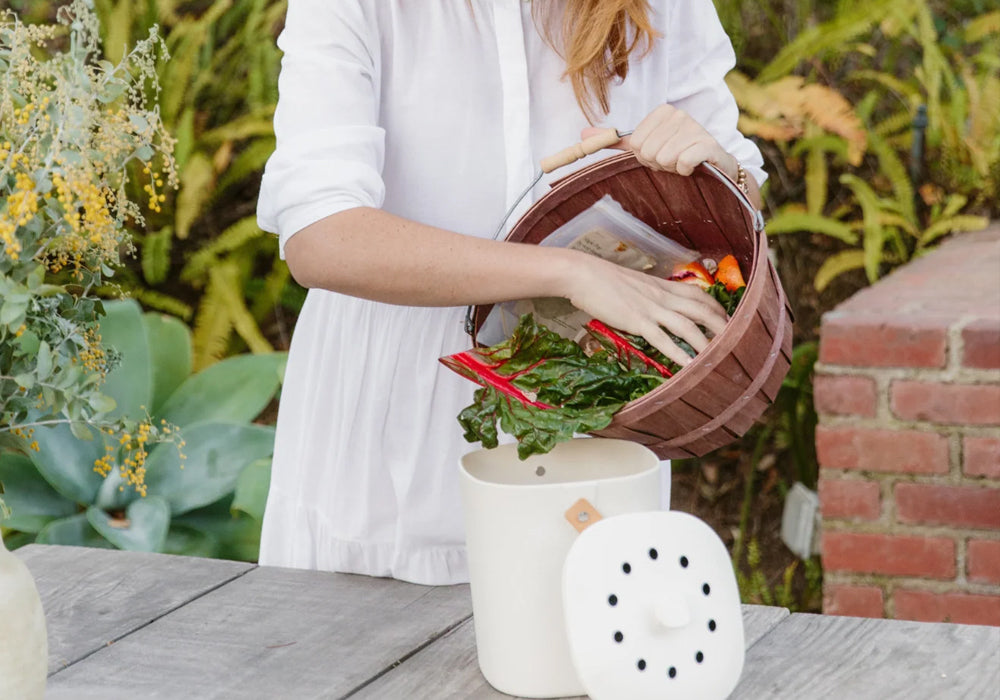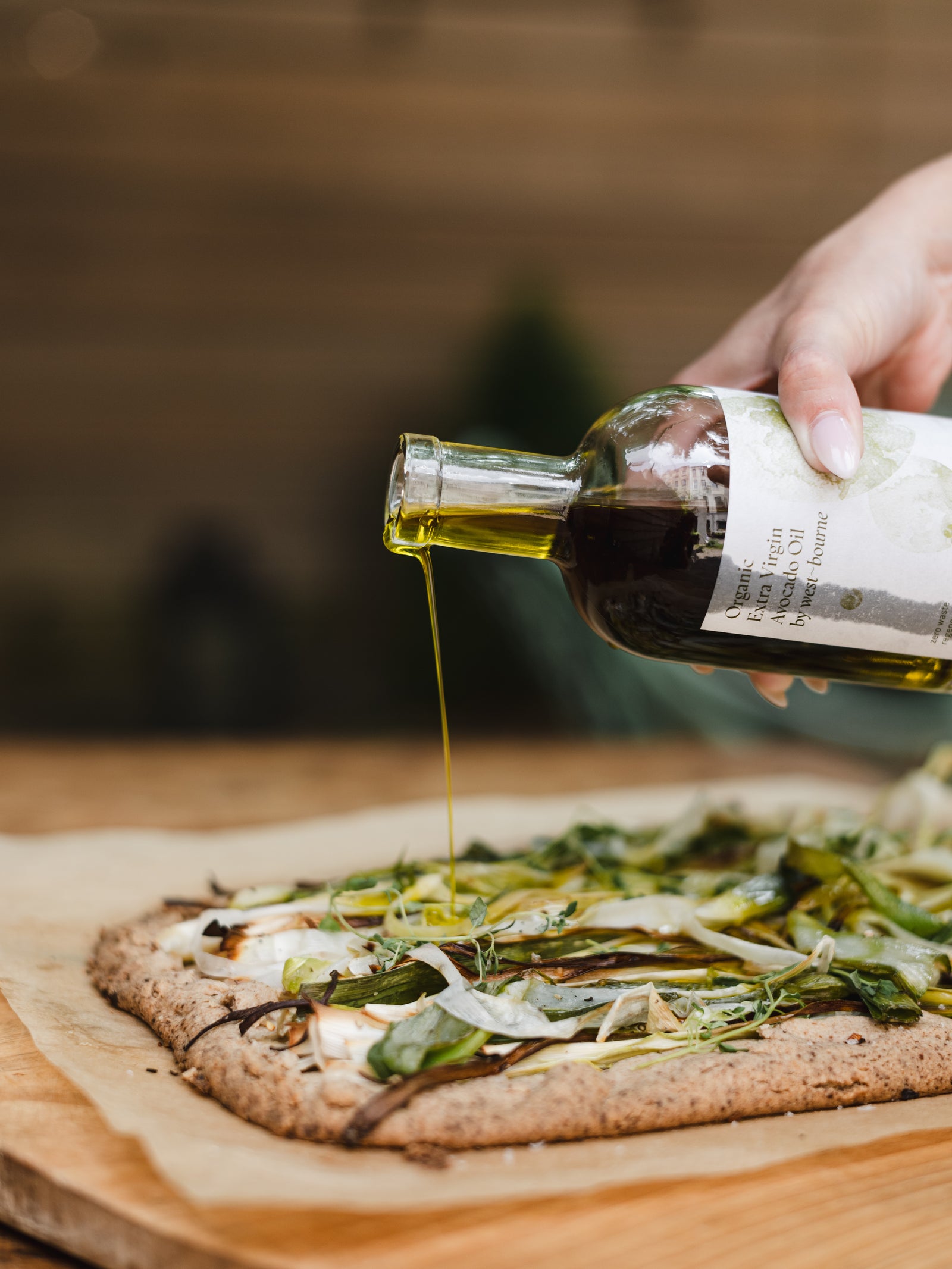Compost Without the Plot: Your Kitchen Composting Questions, Answered
A brief guide to making food waste chic and circular.

You might admire the notion of a garden compost heap—soil-rich, charmingly bucolic—but for many of us, that pastoral setup isn't an option. Instead, composting becomes a more discreet ritual: a sealed bin under the sink, food scraps stored neatly in the freezer, and a reliance on the municipal green waste system. Still, questions remain. What can be composted? Will there be fruit flies? And does it really make a difference? Here, we answer the most common concerns with clarity and encouragement—because real impact is made one step at a time.

Why compost at all?
Because food waste—peels, vegetable discards, coffee grounds—when diverted from landfill, becomes black gold. Composting transforms organic kitchen waste into nutrient-rich soil through the action of microorganisms, oxygen, and moisture. What you discard while chopping and cooking, or scrape from your plate, can regenerate the soil rather than decompose anaerobically in the landfill—producing methane, a potent greenhouse gas and significant contributor to climate change.
Does composting even make a difference? Won't it all end up in the same bin anyway?
Composting matters—if it's done correctly. Most cities with compost collection have dedicated processing streams. But municipal infrastructure varies, so be sure to check your local program's specifics.
See below for a list of references across six major U.S. cities.
What about odor? And fruit flies?
If left in warm air, fruit and vegetable scraps can emit odor and attract flies or ants. But when contained in a sealed countertop bin equipped with a charcoal filter, compost can remain entirely discreet. Adding baking soda to your bin can further neutralize odor. Empty it regularly—daily or every other day—and store it beneath the sink or in the freezer for extra protection against odor and pests.


What if my city doesn't offer composting?
Private compost collection services—such as BK ROT in Brooklyn or Block Bins in Chicago—are increasingly available, or partner with a local community garden accepting food scrap donations. Many farmers' markets, food co-ops, and garden networks welcome food scraps, even where city programs do not. Store the scraps in your freezer and drop them off weekly. If you have a small outdoor area, vermicomposting (worm bins) offers a compact, effective, and largely odor-free solution.
What about the new home composters?
Electric composters—like Mill, Lomi, and the Vitamix FoodCycler—don't produce true compost. Instead, they use heat and agitation to dehydrate and grind food waste into a dry, soil-like material often referred to as "pre-compost." While they don't actively regenerate soil, they do divert food scraps from landfill, lowering methane emissions. The resulting material can sometimes be added to soil as a conditioner or further processed in an outdoor compost system.


What is actually compostable?
It depends entirely on where you live. Some cities accept compostable bioplastics, tea bags, and eggshells; others are far more restrictive. Check your local composting program's website for the most accurate information. When in doubt, keep it simple with raw vegetable scraps, fruit peels, and coffee grounds.
What if my compost pickup is infrequent?
Missed or infrequent compost pickups can leave compost sitting for too long. In this case, store your scraps in the freezer until the next pickup to minimize odor and mess.
How do I keep my outdoor bin clean?
Consider lining your green bin with compostable bags (if permitted by your municipality), newspaper, or uncoated paper bags to prevent buildup. To deter pests and animals, secure your green bin lid with bungee cords, carabiner clips, or straps. For maintenance, rinse your bin with vinegar or call upon a bin-cleaning service to wash, sanitize, and deodorize as needed.
How do I start?
Begin with a countertop bin. Learn what your city accepts. And allow yourself to keep it imperfect. Compositing is better done consistently than perfectly.
If you’d prefer to try outdoor or backyard composting—whether through open-pile or closed-bin methods—refer to our previous feature How to Compost at Home.
*A short list of municipal composting resources across major U.S. cities:
Los Angeles
L.A. Sanitation: Curbside Organics Recycling Program
LA Compost
New York City
NYC Department of Sanitation: Curbside Composting
Big Reuse: NYC Food Scrap Drop-Off
BK ROT (Brooklyn)
San Francisco
Recology San Francisco: Composting & Recycling
Austin
City of Austin: Curbside Composting Collection Program
Chicago
City of Chicago: Food Scrap Drop-Off Program
Block Bins







